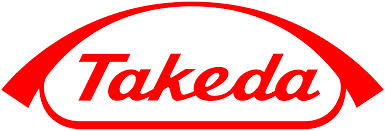Takeda and Ovid Therapeutics shake on innovative collaboration for TAK-935 in rare pediatric epilepsies

Collaboration between pharma and biotech underscores potential for new approaches to partnering.
Takeda Pharmaceutical Company and Ovid Therapeutics have formed a global collaboration focused on the clinical development and commercialization of Takeda’s investigational new drug TAK-935, a novel, potent and highly selective CH24H inhibitor, in rare pediatric epilepsies. TAK-935 has successfully completed several Phase I clinical studies under Takeda’s leadership and will be moving into Phase Ib/IIa clinical studies in rare epileptic encephalopathies where patients continue to suffer from significant unmet medical needs.
Innovative Structure and Terms of Collaboration
Under the terms of the agreement, Takeda received equity in Ovid and may be eligible to receive certain milestone payments based on the advancement of TAK-935. The companies will share in the development and commercialization costs on a 50/50 basis and, if successful, the companies will share in the profits on a 50/50 basis. Takeda will lead commercialization in Japan, and has the option to lead in Asia and other selected geographies. Ovid will lead clinical development activities and commercialization of TAK-935 in the US, Europe, Canada and Israel. All activities of the collaboration regarding TAK-935 will be guided by the Takeda/Ovid “One Team” concept, an integrated and interdisciplinary team from both companies devoted to the successful advancement of TAK-935 across rare epilepsy syndromes. If mutually agreed, additional orphan central nervous system indications may also be pursued.
“Ovid’s agility, exclusive focus on developing therapies for rare neurological diseases and specialized capabilities in central nervous system drug development are highly differentiated and well suited to this important program,” said Emiliangelo Ratti, head of the central nervous system therapeutic area for Takeda Pharmaceuticals. “Takeda is driven by the urgent need to provide novel medicines for people with psychiatric, neurological and rare central nervous system disorders for whom there are no treatments available. This agreement is a prime example of our commitment to partnering select development programs with prominent companies that will enable us to remain at the leading edge of innovation.”
Clinical Development Strategy
The companies expect to initiate a Phase Ib/IIa study in 2017 in patients with rare epileptic encephalopathies including Dravet syndrome, Lennox-Gastaut syndrome and Tuberous Sclerosis Complex. These rare epilepsies often present in infancy and cause significant morbidities for patients and their families throughout their lives. Despite the availability of medicines for epilepsy, there are few treatment options for these specific disorders, creating a significant medical need for the development of novel therapies.
“Working together with Takeda we believe we can build on the strengths and interests of both companies. This is a creative alliance between a biotechnology and pharmaceutical company where not only do we both share the passion and commitment to develop meaningful medicines that may improve the lives of patients worldwide but also we are able to unlock value in both companies’ pipelines and talent,” said Jeremy Levin, chairman and CEO of Ovid Therapeutics. “This alliance advances our strategy to become a leader in the rare neurological disorders field. Building on our work with OV101 in Angelman and Fragile X syndromes, the collaboration in rare epilepsies extends our ability to help patient communities who face neurological conditions with limited to no therapeutic options.”
Position your company at the heart of the global Pharma industry with a CPHI Online membership
-
Your products and solutions visible to thousands of visitors within the largest Pharma marketplace
-
Generate high-quality, engaged leads for your business, all year round
-
Promote your business as the industry’s thought-leader by hosting your reports, brochures and videos within your profile
-
Your company’s profile boosted at all participating CPHI events
-
An easy-to-use platform with a detailed dashboard showing your leads and performance